|
In the mid-nineteenth century, a young man named Allan Pinkerton fled Scotland with a warrant on his head for his work agitating for labor rights. In the United States, he continued to fight for social justice. Beginning in 1844, he worked for Chicago Abolitionist leaders and his home outside of Chicago was a stop on the Underground Railroad. He was a close friend and ardent supporter of John Brown, helping him get runaway slaves to Canada. He was working as a barrel maker when he stumbled on a gang of counterfeiters. His handling of that incident began his career as a crime-solver, and in 1849, he was hired to be the first detective on the Chicago police force. Detective work was considered sleazy at that time—a way of profiting from other’s crimes. Pinkerton gave it a new meaning by making justice his mission. He created careful “detecting methods,” using psychology, logic, and clear thinking. These tools worked, and a year later, Pinkerton was able to set up his own company known as the North-Western Police Agency. This later became Pinkerton & Co. and then the Pinkerton National Detective Agency. In October, 1856 Pinkerton hired Kate Warne as the first woman detective in the United States. He was so impressed with her skill that he hired many other women (fifty years before any police department in America had female personnel.) While Pinkerton insisted that detectives must combine “considerable intellectual power and knowledge of human nature,” he discouraged them from pressuring confessions or taking statements from witnesses who were drunk. Above everything else, he valued the truth. Pinkerton ran the new spy agency, the Secret Service, for President Lincoln during the Civil War the same way he'd run his detective agency. He honed the art of “spycraft” and trained his agents the same way for both jobs, detective and spy. “The object of every investigation. . .is to come at the whole truth. . .There must be no endeavoring, therefore, to over-color or exaggerate anything against any particular individual, whatever the suspicion may be against him.” Pinkerton was working on a national criminal database when he died, but he left behind the legacy of his intelligence agency and a series of popular books about his cases, the first “true crime” stories in America. A retouched photograph of Pinkerton (left) with President Abraham Lincoln and Union Major General John A. McClernand on the Battlefield of Antietam, Maryland. Library of Congress Pinkerton is shown on horseback on the Antietam Battlefield in 1862. Pinkerton served on several undercover missions as a Union soldier using the alias Major E.J. Allen. This counterintelligence work done by Pinkerton and his agents is comparable to the work done by today's U. S. Army Counterintelligence Special Agents in which Pinkerton's agency is considered an early predecessor. Library of Congress  Award-winning author Marissa Moss has written the first children’s book about Allan Pinkerton. Everyone knows the story of Abraham Lincoln, but few know anything about the spy who saved him! Pinkerton had a successful detective agency, but his greatest contribution was protecting Abraham Lincoln on the way to his 1861 inauguration. Though assassins attempted to murder Lincoln en route, Pinkerton foiled their plot and brought the president safely to the capital. The Eye That Never Sleeps is illustrated with a contemporary cartoon style and includes a bibliography and a timeline. MLA 8 Citation
Moss, Marissa. "How to Go From Being Wanted by the Police to Working For Them." Nonfiction Minute, iNK Think Tank, 23 May 2018, www.nonfictionminute.org/ the-nonfiction-minute/ How-to-Go-From-Being-Wanted-by-the-Police-to-Working-for-Them.
0 Comments
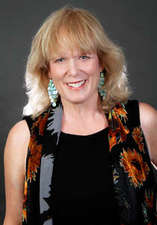 Alexandra Siy Science through the lens Do you know about the “birds and the bees?” If you don’t, don’t worry. You will learn soon enough. When it comes to flowers there’s nothing to hide. There’s just no way around it—flowers are sexy. Their colorful, curvy petals are soft as velvet and as fragrant as the most expensive perfumes. Their nectar is as sweet as…well, honey. Besides being pretty, flowers have power. Their pollen is packed with protein. No wonder the birds and the bees, and insects of many kinds, find them so irresistible. Pollen may be the perfect food for bees, but it is also the way plants get together. Think about it. Plants can’t walk, crawl, swim, or fly. So, how does boy meet girl? In order to reproduce, the pollen from the male has to have direct contact with the female (and I don’t mean texting). Pollen grains are carried on the legs of bees and in the beaks of birds, from one flower to another. A few grains become engaged, hitched, and literally stuck on the sticky female flower part called the stigma. Sugar from the stigma fuels the pollen grain to sprout a tube. This pollen tube grows downward through the female part called the pistil and into the chambers that contain tiny bubble shaped eggs. When the tip of the pollen tube finally reaches an egg chamber it releases a male sperm cell. The sperm and the egg unite, and a brand-new cell is formed. This is the beginning of a seed. Picture an apple. Before the apple was a fruit containing seeds, it was a very sexy flower. So the next time someone asks you if you know about the birds and the bees, tell them about flower power. They might be surprised how plants get together to make baby plants, which in scientific terms is an interesting example of the process called sexual reproduction. 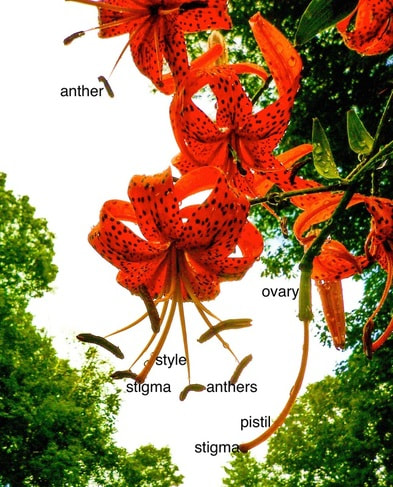 Pollen is contained in the anthers, which are the six slipper shaped sacs at the end of the stamens. The female stigma is the rounded tip located at the top of the style. The pollen tube is a microscopic tube that grows through the style and into the ovary, which is hidden inside the base of this flower. Hanging down, at the lower right side of the photo are the remains of another flower. The petals and stamen have fallen off revealing the entire pistil: the stigma, style, and the ovary (green structure), which holds the eggs. Photo credit © Alexandra Siy  Why not watch some web-spinners do their thing with the help of this stunning and superlative book by Alexandra Siy? You can read more about it here. Alexandra Siy is a member of iNK's Authors on Call and is available for classroom programs through Field Trip Zoom, a terrific technology that requires only a computer, wifi, and a webcam. Click here to find out more. MLA 8 Citation
 Way, way back in the year 111 BCE (Before our Common Era), thousands of Chinese warriors armed with fine iron swords and lethal crossbows, rode and marched south to conquer the little kingdom of Nanyue. To the people living there, the little kingdom was Nam Viet. To us, faraway in their unimaginable future, their land is northern Vietnam. After the invaders came all sorts of Chinese colonizers. They would build roads and temples plus new trading ports on Nanyue’s coast, where the Red River empties into the South China Sea perfect for China’s merchant ships, on their way to or just returned from India. The Chinese brought their culture, language, and top-down style of government too. It would all be for the glory (and increased wealth) of the empire and for the betterment of the conquered barbarians. You’d think they’d appreciate it! Not necessarily. Over the next thousand years or so, the ancient Vietnamese would get fed up with their heavy taxes and harsh treatment. They’d rise up more than once to challenge their Chinese overlords. One particular revolt would inspire stories ever after. It took place around the years 39-43 CE. Who led this famous revolt? Two daughters of a military ruler; they lived in the vicinity of the modern city of Hanoi. The women of ancient Vietnam enjoyed much more social equality than Chinese women. Females worked in business, as public officials and they could inherit property. They could become proficient in the martial arts, as did Trung Hac and her younger sister, Trung Nhi. With their knowledge of armor and swords and with their fury, they raised up an army of 80,000 soldiers! Other women, including their mother, were generals, mounted on war elephants at the head of the Trung Sisters’ army! They liberated fortresses, battled the Chinese, and drove them out of Vietnam! Alas, this is not the end of the Legend of the Trung Sisters. The warriors of wealthier, more powerful China returned to defeat them in the year 43. And rather than surrender, the sisters took what was for them the more honorable action: They took their own lives. Some stories say they drowned themselves in a river. Some say they disappeared into the clouds. Whatever did happen, the Trung Sisters are remembered in plays, poems, and songs to this very day, as Heroines of Vietnam. 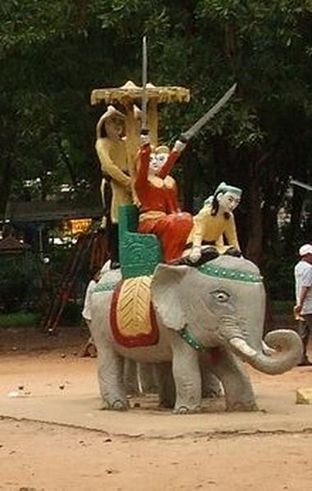 Even though the Trưng Sisters' revolt against the Chinese was almost 2,000 years ago, its legacy in Vietnam remains as they are seen as symbols of Vietnamese resistance and freedom. To this day, the people of Vietnam perform memorial ceremonies for the sisters every year at a Hanoi temple named for them. This is a statue of the Trung sisters in Ho Chi Minh City. 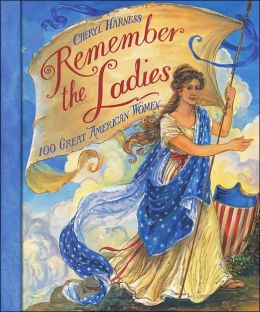 In a 1776 letter cautioning her husband to "remember the ladies," Abigail Adams made one of the earliest pleas for women's rights in America. How could she have known, in the years to follow, just how many strong and independent women would step forward to forge new paths in their fight for equality? From Clara Barton and Harriet Tubman to the less well-known but equally important Belva Lockwood and Maya Ying Lin, Remember the Ladies spans the centuries to provide an engaging look at one hundred outstanding women who have helped shape our great nation. Click here. MLA 8 Citation
Harness, Cheryl. "The Real Life Legendary Trung Sisters of Ancient Vietnam." Nonfiction Minute, iNK Think Tank, 22 May 2018, www.nonfictionminute.org/ the-nonfiction-minute/The-Real-Life-Legendary-Trung-Sisters-of-Ancient-Vietnam. 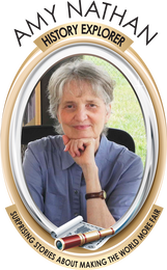 When musicians play a lively tune, they often find themselves spontaneously tapping their toes and moving about to the pulsing beat. But when Ellen Ochoa played her flute at work one day in 1993, she couldn’t be spontaneous at all. If she hadn’t made careful plans, she could have been blown about the room, just by playing one long note on her flute. That’s because she was an astronaut working on the U.S. Space Shuttle as it circled Earth more than a hundred miles out in space. Gravity is so weak far out in space that astronauts—and any of their gear that isn’t fastened down—will float about inside a space craft. Blowing air into her flute could have created enough force to actually send Ochoa zipping about the space shuttle cabin. So, to keep herself in place as she played, she had to slip her feet into strong loops attached to the floor. Dr. Ochoa, now the director of NASA’s Johnson Space Center, was the first U.S. astronaut to bring a flute on a space mission, but she wasn’t the first to make music in space. Nearly thirty years earlier, in December 1965, two astronauts onboard the Gemini 6 space craft played a musical joke on mission control officials down on Earth. Those astronauts—Walter M. Schirra, Jr., and Thomas P. Stafford—told mission control that they saw an unusual object near their spaceship, a satellite perhaps, moving from North to South. They said they would try to pick up some sound from this mysterious object. Then they used the harmonica and bells they had secretly brought with them on that December mission to surprise folks listening down below by playing “Jingle Bells.” In recent years, other astronauts have brought musical instruments on space missions to help lift their spirits, especially those who spend many months on the International Space Station. Like Dr. Ochoa, these astronaut musicians have to make adjustments, such as using a bungee cord to attach an electronic piano keyboard to a pianist’s leg. Some astronauts have composed music in space, including Canadian Chris Hadfield. On May 6, 2013, he sang the song he wrote—called “I.S.S. (Is Somebody Singing)”—in a live TV broadcast from the space station as thousands of Canadian schoolchildren sang along with him down on Earth. Click here for a recording of that space-to-Earth performance 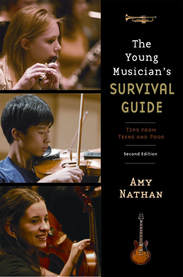 Learning to play an instrument can be fun and, at times, frustrating. Amy Nathan's lively book helps young people cope with the difficulties involved in learning a new instrument and remaining dedicated to playing and practicing. Teens from renowned music programs - including the Juilliard School's Pre-College Program and Boston University's Tanglewood Institute - join pro musicians in offering practical answers to questions from what instrument to play to where the musical road may lead. For more information, click here. MLA 8 Citation
Nathan, Amy. "Music That's Out of This World." Nonfiction Minute, iNK Think Tank, 11 May 2018, www.nonfictionminute.org/the-nonfiction-minute/ Music-Thats-Out-of-This-World. Have you ever heard the proverbial saying, “every cloud has a silver lining”? Well, this was certainly the case for the accidental paleontologist, Mary Anning. Mary Anning was born May 21,1799 to a working-class family living on the southern coast of England. Life was tough for the Annings. Short of food and creature comforts, they also suffered through frequent storms so severe they sometimes had to climb out the second-floor windows of their home to escape flooding. The Annings weren’t the only things displaced by the angry sea. Over the centuries, rain and wind had washed away layers of earth on the cliffs near their home, exposing petrified bones as well as animal skeletons imprinted in stone. At just 12 years old, Mary found a four-foot skull. Within months, she’d uncovered the entire creature. It turned out to be the fossilized remains of an Ichthyosaur and when a London collector bought it for 23 pounds (more than $2K today!), she was hooked. Mary even prospected for fossils in winter, when storms raged. It was dangerous work. She narrowly missed being crushed by landslides many times. (Sadly, her trusty terrier Tray was not so lucky.) She found fossils of ammonite and belemnite, which she sold to summer tourists, possibly inspiring the tongue twister, “She sells sea shells by the sea shore.” But it was Mary’s keen eye for the unique and remarkable that caused her reputation to grow. She constructed the first complete Plesiosaurus as well as a flying reptile called Pterosaur. Despite her limited education, she kept up with all the scientific journals and often wrote to them, challenging findings she did not agree with. Famous archaeologists and paleontologists from Britain and Europe flocked to her Dorset doorstep. But being a woman and working class, Mary never gained acceptance within the all-male, upper-class scientific circles of her day. Though she did not receive the recognition due her in life, Mary Anning is regarded today as one of the most influential women in the history of science. Her contributions to the field of paleontology remain unsurpassed. It is said that every cloud brings a silver lining. And, indeed, the wind and rain brought fortune and fame to this accidental female scientist and fossil hunter of the Victorian era. This YouTube will share some of the interesting information Mary Anning was able to learn by the study of dinosaur poop!  Sarah Towle is an award-winning digital storyteller of immersive tales for educational tourism. With her latest project for secondary school students—the History Hero BLAST—she puts the Story back in History, bringing a fictional flair to factual tales of inspirational figures from around the world and throughout time. A blog and future podcast, the HHBLAST welcomes the participation of published and aspiring authors, including young writers. Click here to find out more about how to bring the HHBLAST—and Sarah—to your school! |
*NEWS
|
For Vicki Cobb's BLOG (nonfiction book reviews, info on education, more), click here: Vicki's Blog
The NCSS-CBC Notable Social Studies Committee is pleased to inform you
that 30 People Who Changed the World has been selected for Notable Social Studies Trade Books for Young People 2018, a cooperative project of the National Council for the Social Studies (NCSS) & the Children’s Book Council
Categories
All
Abolitionists
Adams Janus
Adaptation
Adaptations
Adkins Jan
Advertising
Aerodynamics
Africa
African American History
African Americans
Africa West
Agriculture
Aircraft
Air Pilots
Air Pressure
Air Travel
Albee Sarah
Alchemy
Alligators
Allusion
American History
American Icons
Amphibians
Amundsen Roald
Anatomy
Ancient
Ancient Cultures
Anderson Marian 1897-1993
Animal Behavior
Animal Experimentation
Animal Intelligence
Animals
Animation
Antarctica
Ants
Apache Indians
Apes
April Fool's Day
Architecture
Argument
Arithmetic
Art
Art Deco
Artists
Arts
Asia
Astronauts
Astronomy
Athletes
Atomic Theory
Audubon Societies
Authors
Autobiography
Automobiles
Aviation
Awards
Bacteria
Baseball
Battuta Ibn
Bears
Beatles
Beavers
Bees
Biodegradation
Biography
Biology
Biomes
Biomimicry
Biplanes
Birds
Black Death
Black History
Blindness
Blizzards
Bombs
Bonaparte Napoleon
Boone Daniel
Botany
Brazil
Bridges
Brill Marlene Targ
Brooklyn Bridge
Brown John
Buffaloes
Building Materials
Butterflies
Caesar
Caesar Julius
Caissons
Calculus
Calendars
Cannibal
Capitals
Caravaggio
Carbon Dioxide
Carnivores
Carson Mary Kay
Cartoons & Comics
Carving (Decorative Arts)
Cascade Range
Castaldo Nancy
Castles
Castrovilla Selene
Cathedrals
Cats
Caves
Celts
Cemeteries
Chemistry
Children's Authors
Child Welfare
China
Choctaw Indians
Christmas
Chronometers
Cicadas
Cinco De Mayo
Ciphers
Circle
Citizenship
Civil Rights
Civil Rights Movements
Civil War
Civil War - US
Climate
Climate Change
Clocks And Watches
Clouds
Cobb Vicki
COBOL (Computer Language)
Code And Cipher Stories
Collard III Sneed B.
Collectors And Collecting
Color
Commerce
Communication
Competition
Compilers
Composers
Computers
Congressional Gold Medal
Consitution
Contests
Contraltos
Coolidge Calvin
Cooling
Corms
Corn
Counterfeiters
Covid-19
Crocodiles
Cryptography
Culture
Darwin Charles
Declaration Of Independence
Decomposition
Decompression Sickness
Deep-sea Animals
Deer
De Medici Catherine
Design
Detectives
Dickens Charles
Disasters
Discrimination
Diseases
Disney Walt
DNA
Dogs
Dollar
Dolphins
Douglass Frederick 1818-1895
Droughts
Dr. Suess
Dunphy Madeleine
Ear
Earth
Earthquakes
Ecology
Economics
Ecosystem
Edison Thomas A
Education
Egypt
Eiffel-gustave-18321923
Eiffel-tower
Einstein-albert
Elephants
Elk
Emancipationproclamation
Endangered Species
Endangered-species
Energy
Engineering
England
Englishlanguage-arts
Entomology
Environmental-protection
Environmental-science
Equinox
Erie-canal
Etymology
Europe
European-history
Evolution
Experiments
Explorers
Explosions
Exports
Extinction
Extinction-biology
Eye
Fairs
Fawkes-guy
Federalgovernment
Film
Fires
Fishes
Flight
Floods
Flowers
Flute
Food
Food-chains
Foodpreservation
Foodsupply
Food-supply
Football
Forceandenergy
Force-and-energy
Forensicscienceandmedicine
Forensic Science And Medicine
Fossils
Foundlings
France
Francoprussian-war
Freedom
Freedomofspeech
French-revolution
Friction
Frogs
Frontier
Frontier-and-pioneer-life
Frozenfoods
Fugitiveslaves
Fultonrobert
Galapagos-islands
Galleys
Gametheory
Gaudi-antoni-18521926
Gender
Generals
Genes
Genetics
Geography
Geology
Geometry
Geysers
Ghosts
Giraffe
Glaciers
Glaucoma
Gliders-aeronautics
Global-warming
Gods-goddesses
Gold-mines-and-mining
Government
Grant-ulysses-s
Grasshoppers
Gravity
Great-britain
Great-depression
Greece
Greek-letters
Greenberg Jan
Hair
Halloween
Handel-george-frederic
Harness Cheryl
Harrison-john-16931776
Health-wellness
Hearing
Hearing-aids
Hearst-william-randolph
Henry-iv-king-of-england
Herbivores
Hip Hop
History
History-19th-century
History-france
History-world
Hitler-adolph
Hoaxes
Holidays
Hollihan Kerrie Logan
Homestead-law
Hopper-grace
Horses
Hot Air Balloons
Hot-air-balloons
Housing
Huguenots
Human Body
Hurricanes
Ice
Icebergs
Illustration
Imagery
Imhotep
Imperialism
Indian-code-talkers
Indonesia
Industrialization
Industrial-revolution
Inquisition
Insects
Insulation
Intelligence
Interstatecommerce
Interviewing
Inventions
Inventors
Irrational-numbers
Irrigation
Islands
Jacksonandrew
Jazz
Jeffersonthomas
Jefferson-thomas
Jemisonmae
Jenkins-steve
Jet-stream
Johnsonlyndonb
Jokes
Journalism
Keeling-charles-d
Kennedyjohnf
Kenya
Kidnapping
Kingmartinlutherjr19291968
Kingmartinlutherjr19291968d6528702d6
Kings-and-rulers
Kings Queens
Kings-queens
Koala
Labor
Labor Policy
Lafayette Marie Joseph Paul Yves Roch Gilbert Du Motier Marquis De 17571834
Landscapes
Languages-and-culture
Law-enforcement
Layfayette
Levers
Levinson Cynthia
Lewis And Clark Expedition (1804-1806)
Lewis Edmonia
Liberty
Lift (Aerodynamics)
Light
Lindbergh Charles
Liszt Franz
Literary Devices
Literature
Lizards
Longitude
Louis XIV King Of France
Lumber
Lunar Calendar
Lynching
Macaws
Madison-dolley
Madison-james
Madison-james
Mammals
Maneta-norman
Maneta-norman
Marathon-greece
Marine-biology
Marine-biology
Marines
Marsupials
Martial-arts
Marx-trish
Mass
Massachusetts-maritime-academy
Mass-media
Mastodons
Mathematics
May-day
Mcclafferty-carla-killough
Mcclafferty-carla-killough
Mckinley-william
Measurement
Mechanics
Media-literacy
Media-literacy
Medicine
Memoir
Memorial-day
Metaphor
Meteorology
Mexico
Mickey-mouse
Microscopy
Middle-west
Migration
Military
Miners
Mississippi
Molasses
Monarchy
Monsters
Montgomery
Montgomery-bus-boycott-19551956
Montgomery-heather-l
Monuments
Moon
Moran-thomas
Morsecode
Morsesamuel
Moss-marissa
Moss-marissa
Motion
Motion-pictures
Mummies
Munro-roxie
Munro-roxie
Musclestrength
Museums
Music
Muslims
Mythologygreek
Nanofibers
Nanotechnology
Nathan-amy
Nathan-amy
Nationalfootballleague
Nationalparksandreserves
Nativeamericans
Native-americans
Native-americans
Naturalhistory
Naturalists
Nature
Nauticalcharts
Nauticalinstruments
Navajoindians
Navigation
Navy
Ncaafootball
Nervoussystem
Newdeal19331939
Newman-aline
Newman-aline
Newton-isaac
New-york-city
Nobelprizewinners
Nomads
Nonfictionnarrative
Nutrition
Nylon
Nymphs-insects
Oaths Of Office
Occupations
Ocean
Ocean-liners
Olympics
Omnivores
Optics
Origami
Origin
Orphans
Ottomanempire
Painters
Painting
Paleontology
Pandemic
Paper-airplanes
Parksrosa19132005
Parrots
Passiveresistance
Patent Dorothy Hinshaw
Peerreview
Penguins
Persistence
Personalnarrative
Personification
Pets
Photography
Physics
Pi
Pigeons
Pilots
Pinkertonallan
Pirates
Plague
Plains
Plainsindians
Planets
Plantbreeding
Plants
Plastics
Poaching
Poetry
Poisons
Poland
Police
Political-parties
Pollen
Pollution
Polo-marco
Populism
Portraits
Predation
Predators
Presidentialmedaloffreedom
Presidents
Prey
Prey-predators
Prey-predators
Prime-meridian
Pringle Laurence
Prohibition
Proteins
Protestandsocialmovements
Protestants
Protestsongs
Punishment
Pyramids
Questioning
Radio
Railroad
Rainforests
Rappaport-doreen
Ratio
Reading
Realism
Recipes
Recycling
Refrigerators
Reich-susanna
Religion
Renaissance
Reproduction
Reptiles
Reservoirs
Rheumatoidarthritis
Rhythm-and-blues-music
Rice
Rivers
Roaringtwenties
Roosevelteleanor
Rooseveltfranklind
Roosevelt-franklin-d
Roosevelt-theodore
Running
Russia
Safety
Sanitation
Schwartz David M
Science
Scientificmethod
Scientists
Scottrobert
Sculpture
Sculpturegardens
Sea-level
Seals
Seals-animals
Secretariesofstate
Secretservice
Seeds
Segregation
Segregationineducation
Sensessensation
September11terroristattacks2001
Seuss
Sextant
Shackletonernest
Shawneeindians
Ships
Shortstories
Silkworms
Simple-machines
Singers
Siy Alexandra
Slavery
Smuggling
Snakes
Socialchange
Social-change
Socialjustice
Social-justice
Socialstudies
Social-studies
Social-studies
Sodhouses
Solarsystem
Sound
Southeast-asia
Soybean
Space Travelers
Spain
Speech
Speed
Spiders
Spies
Spiritualssongs
Sports
Sports-history
Sports-science
Spring
Squirrels
Statue-of-liberty
STEM
Storms
Strategy
Sugar
Sumatra
Summer
Superbowl
Surgery
Survival
Swanson-jennifer
Swinburne Stephen R.
Synthetic-drugs
Taiwan
Tardigrada
Tasmania
Tasmanian Devil
Tasmanian-devil
Technology
Tecumsehshawneechief
Telegraph-wireless
Temperature
Tennis
Terrorism
Thomas Peggy
Thompson Laurie Ann
Time
Titanic
Tombs
Tortoises
Towle Sarah
Transcontinental-flights
Transportation
Travel
Trees
Trung Sisters Rebellion
Tundra
Turnips
Turtles
Typhoons
Underground Railroad
Us-environmental-protection-agency
Us History
Us-history
Ushistoryrevolution
Us History Revolution
Us-history-war-of-1812
Us Presidents
Ussupremecourtlandmarkcases
Vacations
Vaccines
Vangoghvincent
Vegetables
Venom
Vietnam
Viruses
Visual-literacy
Volcanoes
Voting-rghts
War
Warne-kate
Warren Andrea
Washington-dc
Washington George
Water
Water-currents
Wax-figures
Weapons
Weather
Weatherford Carole Boston
Whiting Jim
Wildfires
Winds
Windsor-castle
Wolves
Woman In History
Women
Women Airforce Service Pilots
Women-airforce-service-pilots
Womeninhistory
Women In History
Women-in-science
Women's History
Womens-roles-through-history
Wonder
Woodson-carter-godwin-18751950
World-war-i
World War Ii
World-war-ii
Wright Brothers
Writing
Writing-skills
Wwi
Xrays
Yellowstone-national-park
Zaunders Bo
ArchivesMarch 2021
February 2021
January 2021
December 2020
November 2020
October 2020
September 2020
June 2020
May 2020
April 2020
March 2020
February 2020
January 2020
December 2019
October 2019
September 2019
August 2019
July 2019
May 2019
April 2019
March 2019
February 2019
January 2019
December 2018
November 2018
September 2018
June 2018
May 2018
April 2018
March 2018
February 2018
January 2018
December 2017
November 2017
October 2017
September 2017
March 2017
The NONFICTION MINUTE, Authors on Call, and. the iNK Books & Media Store are divisions of iNK THINK TANK INC.
a 501 (c) (3) nonprofit corporation. To return to the iNK Think Tank landing page click the icon or the link below. :
http://inkthinktank.org/
For more information or support, contact thoughts@inkthinktank.org
For Privacy Policy, go to
Privacy Policy
© COPYRIGHT the Nonfiction Minute 2020.
ALL RIGHTS RESERVED.
This site uses cookies to personalize your experience, analyze site usage, and offer tailored promotions. www.youronlinechoices.eu
Remind me later
Archives
March 2023
February 2023
January 2023
December 2022
November 2022
October 2022
September 2022
June 2022
May 2022
April 2022
March 2022
February 2022
January 2022
December 2021
November 2021
September 2021
April 2021
March 2021
February 2021
November 2020
October 2020
September 2020
June 2020
May 2020
April 2020
March 2020
February 2020
January 2020
October 2019
August 2019
July 2019
May 2019
April 2019
December 2018
September 2018
June 2018
May 2018
March 2018
February 2018
January 2018
December 2017
November 2017
October 2017
September 2017



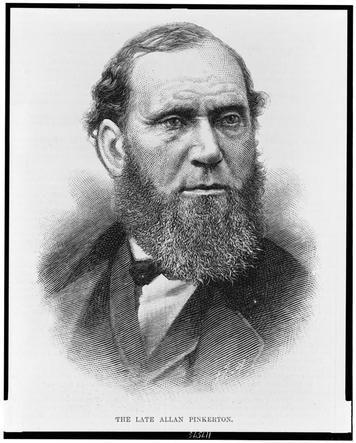
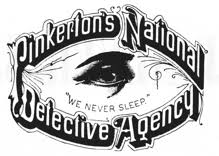
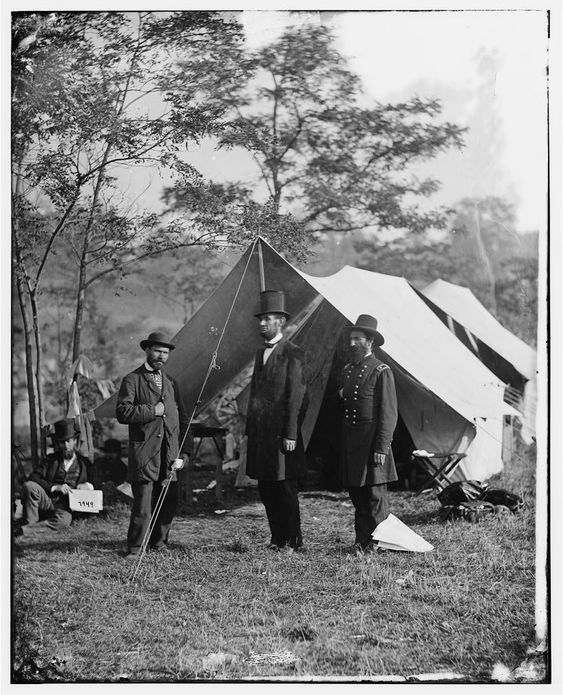
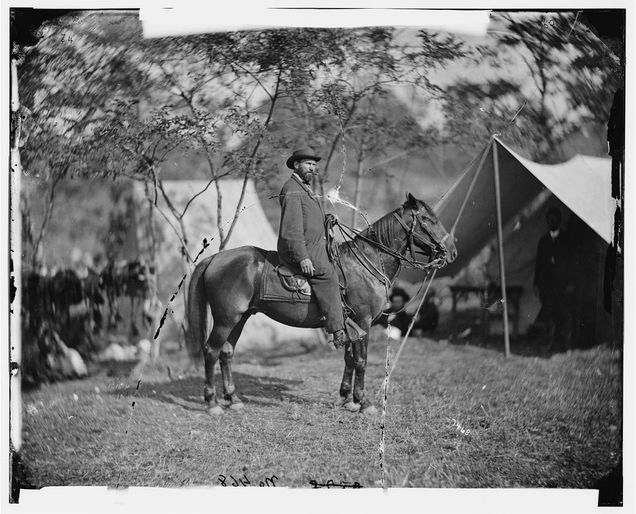


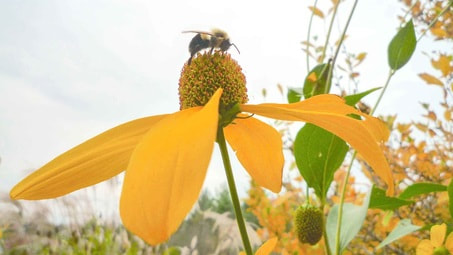



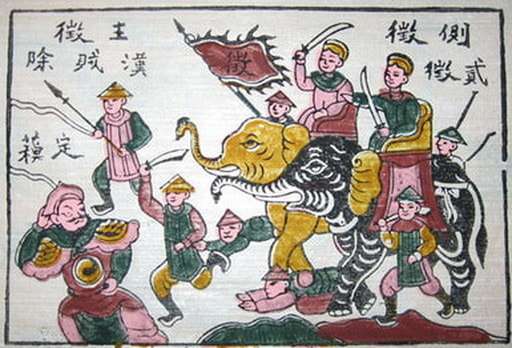




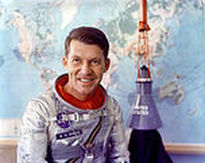
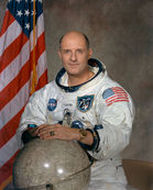
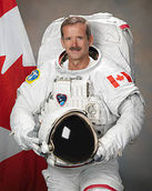



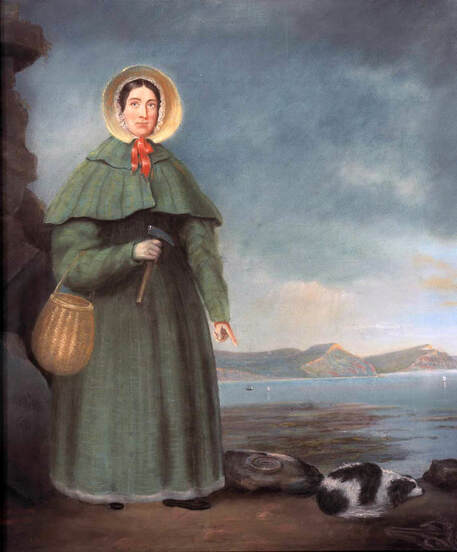
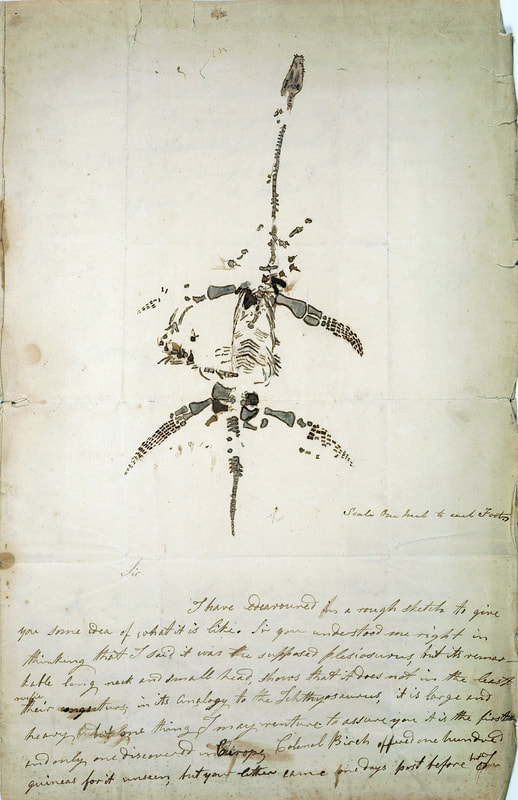
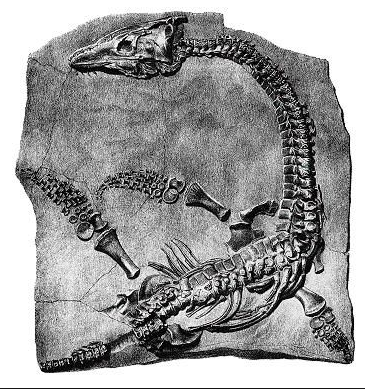
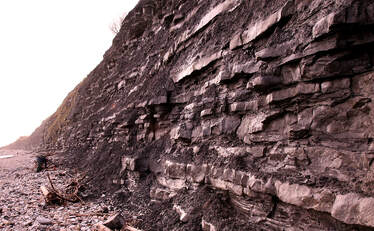
 RSS Feed
RSS Feed
